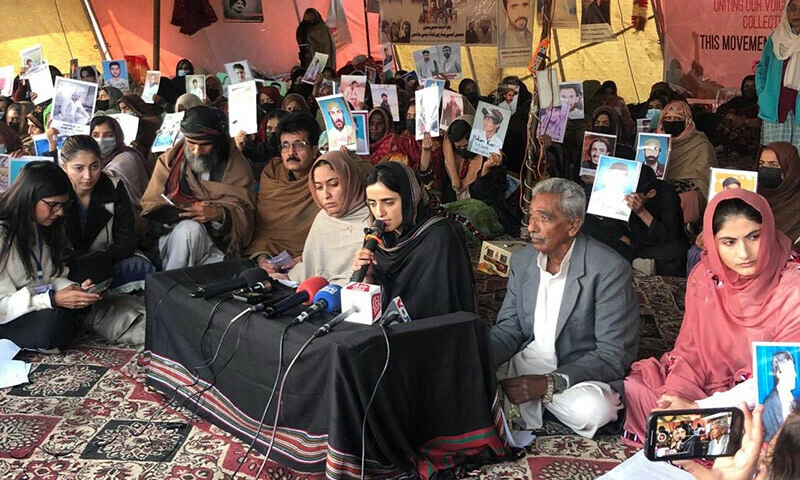
For over a month, the Islamabad Press Club hosted a spectacle masquerading as a protest. Under the banner of the Baloch Yakjehti Committee (BYC), led by Dr. Mahrang Baloch, a figure whose notoriety far exceeds her credibility, it purported to represent the grievances of Baloch families – their faces etched with anguish, their narratives echoing tales of injustice. Yet, as the final curtain descends on this manufactured drama on January 23rd, one question burns bright: was this truly a cry for justice, or rather a meticulously crafted act of foreign-fueled discord aimed at unraveling the very fabric of Pakistan?
The answer, unfortunately, reeks of the latter. Dr. Baloch’s claims of state neglect and systematic disenfranchisement of the Baloch people cannot be divorced from the context of her dubious associations and foreign sponsors. The timing of the sit-in is also noteworthy. It coincides with Pakistan’s 5th round of the Financial Action Task Force’s (FATF) mutual evaluation, scheduled for 2024; a process that demands internal stability and cooperation.
It is no coincidence that foreign actors, with known agendas aimed at destabilizing Pakistan, have been quick to amplify Dr. Baloch’s narrative.
Dr. Baloch’s selective amplification of issues serves an agenda that transcends the well-being of the Balochi people. The composition of the sit-in itself raises further questions. While the presence of genuine victims of enforced disappearances deserves empathy, the involvement of individuals with documented links to separatist movements and even terrorist organizations casts doubt on the sit-in’s true purpose. The selective engagement with certain families and the exclusion of others based on their political affiliations further reinforces the suspicion of a pre-determined agenda.
One need only examine the palpable lack of organic support for Dr. Baloch’s cause to understand its manufactured nature. Hyrbyair Marri and Akhter Mengal, prominent Baloch leaders themselves, distanced themselves from the protest, recognizing it as a tool of external manipulation rather than a sincere pursuit of justice.
Even the international critics of Pakistan’s human rights remained silent on this issue. Perhaps they recognized the orchestrated protest and understood that Balochistan demands nuanced engagement, not Dr. Baloch’s blunt instruments.
It is crucial to acknowledge that legitimate grievances do exist in Balochistan.
Issues of resource distribution, development disparities, and allegations of human rights abuses cannot be simply dismissed. However, Dr. Baloch’s hijacking of these genuine concerns for her own nefarious purposes is a grave injustice to the Baloch people.
The Pakistani state, despite its shortcomings, has demonstrated a willingness to engage with these grievances. Numerous development projects, increased Baloch representation in government, and ongoing dialogues with community leaders are testaments to this commitment. While limitations undoubtedly exist, as they do in every nation grappling with complex internal dynamics, to paint the state as an irredeemable oppressor is a gross misrepresentation of reality.
The very fact that Dr. Baloch and her supporters were allowed to stage their protest in the heart of the capital, under state protection, stands as a testament to the government’s commitment to upholding democratic rights, even for those who espouse controversial views. The truth is, Dr. Baloch’s “stage show” has achieved nothing but the alienation of her own people.
National security is non-negotiable. We cannot compromise it by appeasing those who exploit legitimate grievances for their own ends. Dr. Baloch’s charade is over. Let’s move forward, united, towards a brighter future for all Pakistanis, Baloch and Non-Baloch alike.


















Leave a Reply